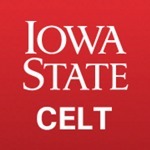Webinar, But is it really "just" science? Engaging critical race theory to unpack racial oppression
| Date/Time: | Wednesday, 21 Oct 2020 from 11:00 am to 12:00 pm |
|---|---|
| Location: | online only - via Zoom, Arizona State University’s HHMI Inclusive Excellence Project, & more |
| URL: | http://asu.zoom.us/j/92158713296 |
| Contact: | or |
| Phone: | 000-000-0000 |
| Channel: | Center for Excellence in Learning and Teaching |
| Categories: | Diversity Training, development |
| Actions: | Download iCal/vCal | Email Reminder |
In noting the distinct, racialized experiences of Black students in science, this seminar introduces Critical Race Theory as a framework for attending to the prevalence, permeance, and impact of structural racism embedded within and manifesting through the culture of science, while also detailing the implications of structural racism in and through science on Black student science engagement.
Facilitated by, Terrell Morton, PhD, University of Missouri
View the event flyer, But is it really "just" science?: Engaging critical race theory to unpack racial oppression with implications for black student science engagement (PDF).
Society for the Advancement in Biology Education Research (SABER)
An initiative sponsored by the Society for the Advancement in Biology Education Research (SABER) focused on promoting awareness, understanding and commitment to change academic biology environments to be more inclusive and strive for racial justice in STEM education. We are excited that speakers will be compensated for their time and this event is co-sponsored by Arizona State University's HHMI Inclusive Excellence Project, SEISMIC Collaboration, and University of California Santa Barbara
Coordinated by the following
This 7-part series includes four discussions and three research seminars with the intended audience of biologists and biology education researchers.
All talks will be posted on the SABER website following the event.
Co-sponsored by Arizona State University's HHMI Inclusive Excellence Project, SEISMIC Collaboration, and University of California Santa Barbara.
This web talk is promoted by the Center for Excellence in Learning and Teaching (CELT).


